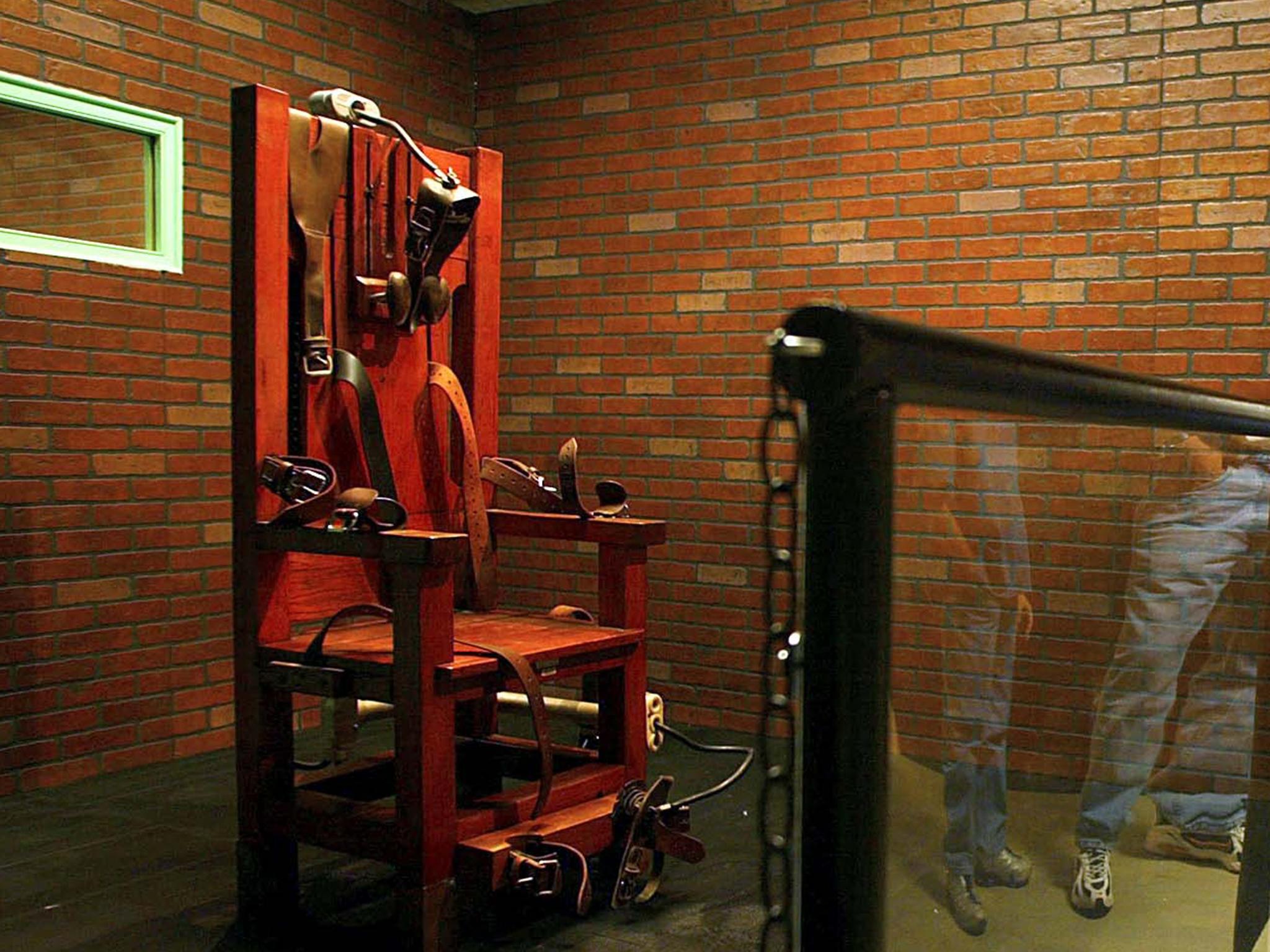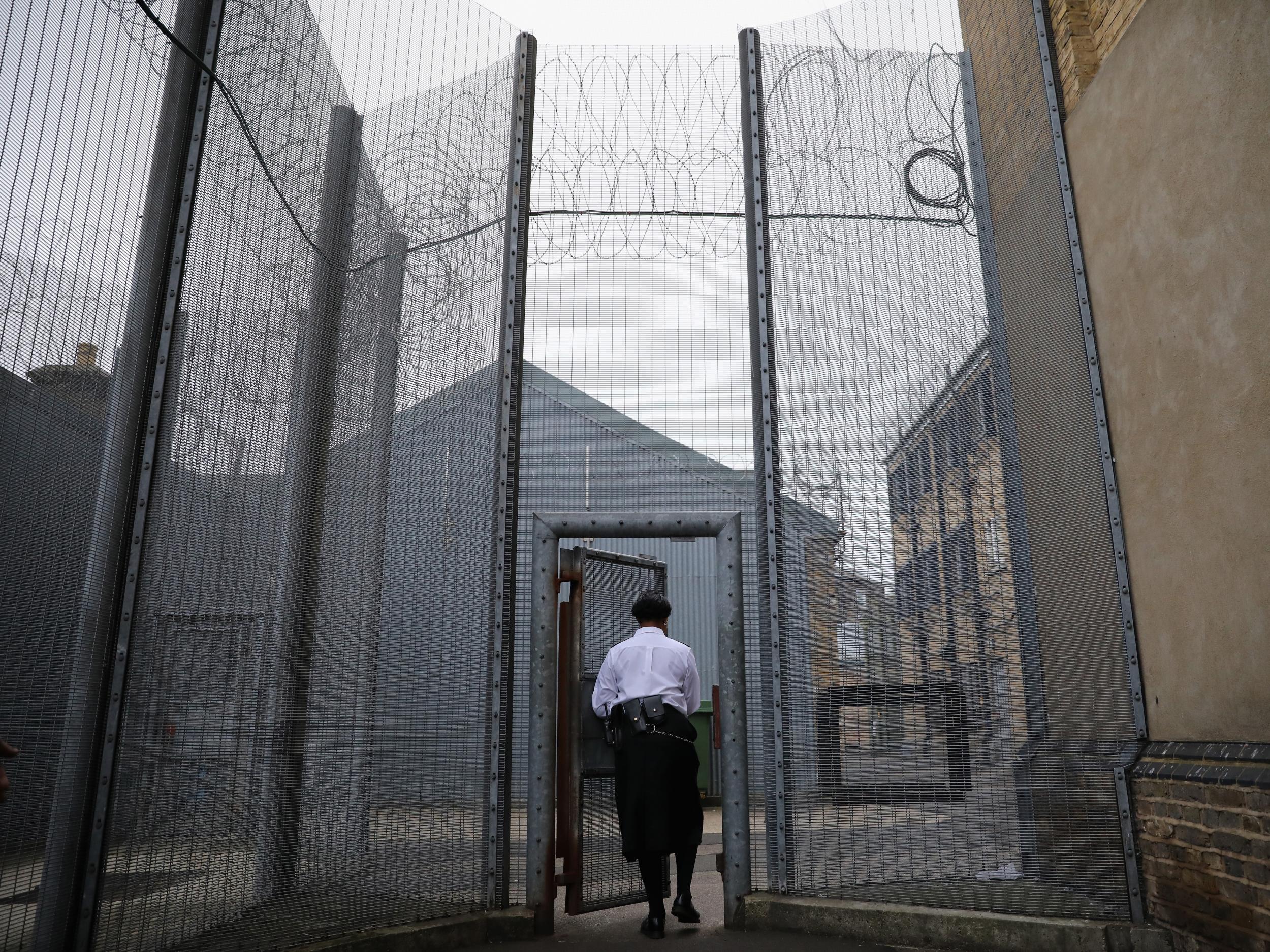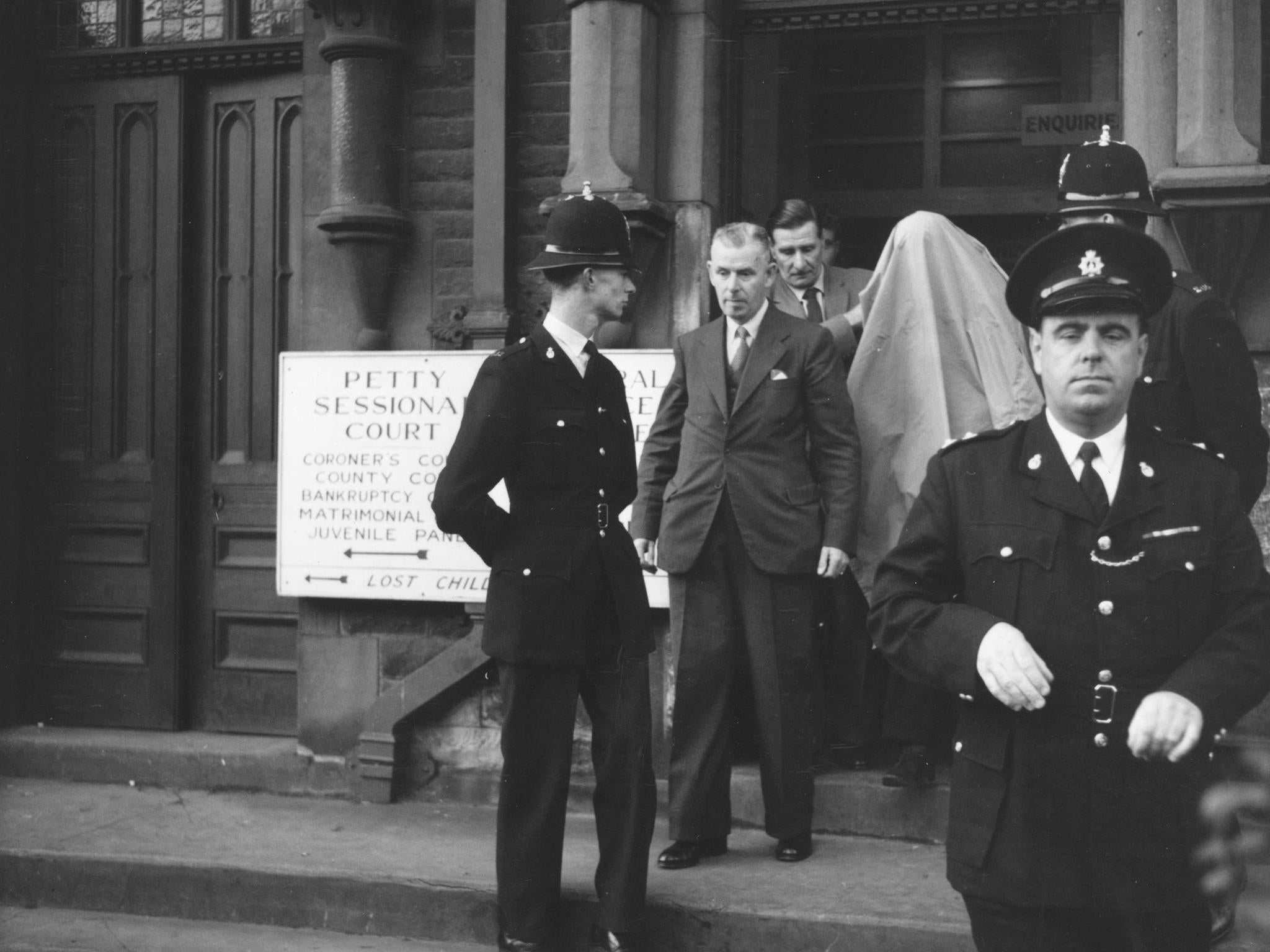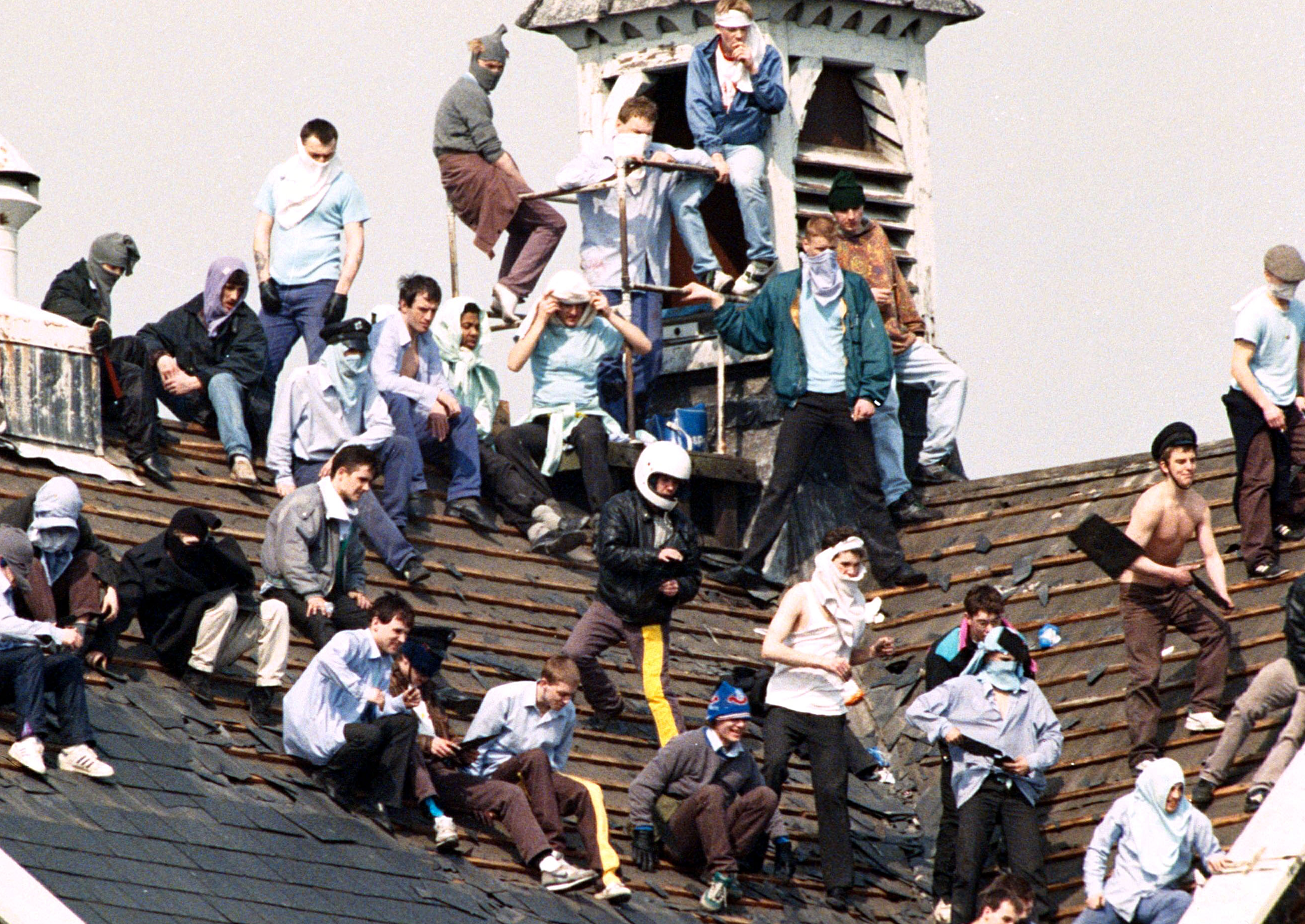I choose death: Should prisoners have the right to choose death over a life sentence?
Andy Martin would rather face a firing squad than spend a lifetime behind bars. Should prisoners be given a ‘menu’ of alternatives to incarceration?

It wasn’t all pop festivals. The sixties saw so many breakthrough liberalising and progressive laws passed, under both Conservative and Labour administrations. Three that spring to mind are the legalising of homosexuality between “consenting adults” (1967), the decriminalisation of suicide (1961), and the prohibition of capital punishment (1965). I am not proposing rolling back any of this enlightened legislation. But I wonder if we have missed an opportunity here, a kind of grand synthesis of these laws, or at least something implied in the interstices between them, and yet never publicly and overtly embraced and legislated for. There isn’t even a word for it, not yet anyway, but I propose to call it “consensual execution”.
Home Secretary Liz Truss, faced with her “toxic cocktail” of understaffing and overcrowding and drug-smuggling and self-harm and plain old harm and mobile phones and drones and the rise of crime inside prison, not to mention super-spicey Northumberland, high on the agenda this week, might like to give the idea serious consideration.
I was just a nipper when the last villains (but were they?) were legally put to death in this country. Albert Pierrepoint (our Lord High Executioner) still had a job then. One of the first stories I wrote was called “The Hangman” (the hero was given a choice – be hanged or become the hangman. Guess which he chose…) Back then it was horror unlimited, especially when there was the whiff of a miscarriage of justice. Which was practically always. Was Hanratty guilty? Was Ruth Ellis? Would a jury find them guilty now? Had they been wrongly convicted? But irrespective of the fallibility of the legal system, all of these executions seemed to me barbaric. I was brought up on George Orwell and Albert Camus, both of whom loathed and rejected capital punishment.
In “A Hanging” (1931), Orwell bears witness to a judicial execution in Burma. This is not an essay or a polemic, more a prose poem or a hymn or lament. He doesn’t make any of the usual objections to capital punishment, he only draws attention to how poignant and pathetic the whole procedure is. The legal killing of someone who clearly does not want to be killed: “a puny wisp of a man, with a shaven head and vague liquid eyes” and a big bushy moustache that seems to be disproportionate to the rest of his body. A dog runs up and gives him a lick before he is hauled off to the gallows. He is handcuffed and tightly bound. Finally he has a hood placed over his head. Only at the moment when he steps to one side to avoid a puddle does Orwell realise “the unspeakable wrongness of cutting a life short when it is in full tide”.
Orwell was there as a young officer in the Indian Imperial Police. He was, in effect, one of those supervising the Burmese Death Row. “He and we were a party of men walking together, seeing, hearing, feeling, understanding the same world; and in two minutes, with a sudden snap, one of us would be gone – one mind less, one world less.” This was only “a hanging”, but there were plenty more in the pipeline, in Burma and other countries closer to home. In the US the death penalty is still legal in 32 states. President Trump is an enthusiastic supporter. A dead man kills no one. Logical.

So far as I know, Albert Camus, the French Orwell, never personally witnessed an execution. But his father did. According to Camus, his father felt duty-bound to attend the execution of a child murderer in Algeria. He had to make a long bus journey to get there and finally returned home only to throw up in disgust at what he had seen. Camus is unimpressed by the technology of the guillotine itself. The brainchild of a Dr Joseph-Ignace Guillotin, invented for the purpose of despatching large numbers of political prisoners during the French Revolution, its claim to fame was that it was virtually painless, and certainly quick, and that, according to its inventor, the blade on the neck will have been felt only as “a slight breeze”. According to legend, the scientist Lavoisier, who was guillotined (“The Revolution has no need of experts” – or hang on, was that Michael Gove?), was supposed to have carried out a final experiment at the very point of death, blinking his eyes a certain number of times (some reports say 27) even after his head had been removed. Camus argues that we cannot know how long that moment feels to the person dying, that it is therefore a refined form of torture.
And he surely has a point. I don’t fancy looking at the inside of a basket either, while the whole lower portion of my body is lying detached some distance away. Unpleasant. But surely the greater torment – for me at least – would be to be stuck in a cell for years, and much longer in any case than 27 winks. In the relatively upbeat if bittersweet ending of The Outsider, the novel by Camus published in 1942, Meursault is in prison but gazing out of his cell window, hearing a ship toot its horn somewhere in the harbour far below, but above all looking forward to his execution, when he expects to be “greeted with cries of hatred”. The earlier unpublished novel is entitled The Happy Death (La mort heureuse) and Meursault’s fate to some extent fits the bill. Eu-thanatos, a good death. Isn’t that what we all want?

Camille Paglia, author of Sexual Personae, professor of English in Philadelphia, self-professed “penis-loving lesbian”, shocked me a couple of times. The first time was at the South Bank when she punched me. She was actually aiming to punch someone else (a woman) and hit me instead. The second was back in the US when she told me she was in favour of capital punishment. She said she wanted to “see ‘em fry”. I think she added something like, “Doesn’t everyone?” She felt that those who didn’t want to see ‘em fry were deluding themselves. The desire for vengeance was natural and healthy and there was no point trying to work around it. She saw a certain aesthetics in execution: it was a matter of symmetry, of balancing up the universe. And if a few innocents have to die along the way, then so be it. She is ruthless like that. Extreme quasi-machismo.
I find I have to dissent from Orwell, Camus, and Paglia. I find myself inspired, instead, by Broadsword. There is a scene at the end of the 1968 film Where Eagles Dare when everyone is in a plane flying back to England and the villainous Colonel Turner, brilliantly played by Patrick Wymark, who has just been exposed as a Nazi spy and traitor, says to Richard Burton (aka Broadsword), “Do I have an alternative?” And Burton, who has just outlined the prospect of a trial, a guilty verdict, and the shadow of the scaffold, replies, cryptically, “If you want it.” Nothing is said but soon the door is swinging open on to the void and there is no more Colonel and Clint Eastwood is springing up to close it again. Upper lips remain stiff. No more needs to be said. Justice has been done.
Admittedly, this narrative is (a) fiction – who in heaven’s name (other than Alistair MacLean) would come up with such an absurd, improbable and risky plot as this one, a mission impossible to extract information from the German high command – and (b) historically specific: no one is going to open a door in a (pressurised) plane these days, not unless you want everyone else to get sucked to their deaths as well. But I remain firmly convinced that at the end of every trial for a serious offence (murder, for example), which is going to result in a very long jail sentence, the prisoner should be able to say, “Do I have an alternative?” And we, the jury, or judge, or indeed executioner, should be able to respond, “If you want it.” Personally, I would probably pass on the chair and lethal injection. I might, like Gary Gilmore in Mailer’s The Executioner’s Song, opt for the firing squad.
As Orwell said, when a murderer is executed, there is only one person who is not guilty of murder. We all become accomplices in legally tolerated murder. This is, it seems to me, the fundamental objection to any state-sponsored execution. But what if nobody (other than the convicted felon) was a murderer? What if we were only carrying out the prisoner’s clearly expressed final wish?
In my imaginary trial of the future, the judge will not be “sentencing” at all. Or rather she will be uttering a sentence, but it is not a declarative assertion. There is no “the prisoner will be taken hence and thence conveyed etc”. It is an interrogative. There is a question mark at the end. The future remains open. And thus the dignity of convicted felons is retained. Because they are presented not so much with a sentence as a menu. My hypothetical judge might say something like this: “You have been found guilty of the crime of murder. However, you still have a choice. You can choose to go to prison for the next 25 years or to have your life terminated.”

Let me hasten to add: I am all in favour of prison reform. I see no reason why prison should be hell on earth. I have been in Sing Sing in upstate New York, where they used to – but no longer – carry out executions, and I gather that this prison is sought after by prisoners, especially black ones (the vast majority), who feel they get decent treatment in there. But in every prison, no matter how lenient or permissive or comfortable, there is always a deprivation of choice. That is the primal punishment. In my Sing Sing seminar I happened to quote Jean-Paul Sartre’s “Hell is other people”. One veteran jailbird said: “That line has been going around my head for the last twenty years and I was wondering who said it.” Given the overcrowding in our prisons, from Parkhurst to Barlinnie, the menu alternative to straight incarceration should at least free up a bit of space. But it has to be genuinely voluntary and consensual.

I remember following a Bedford prison rugby XV back to their home ground, Bedford prison itself (where James Hanratty was hanged for murder and rape). Except it was only a prison XIV since one of their number – to the great dismay of the rest of the team – had done a runner at half-time. It made no sense for this prisoner to make his escape because he didn’t have that much longer to serve and was almost certain to be recaptured. But perhaps he couldn’t face any longer what struck me most forcibly: the sound of the main gate slamming shut. I say “gate” but it was in truth a metal door, very thick, and it slid shut rather than slammed. But the sound it made, like a giant gong being struck with a hammer, resonated in my mind. It still resonates.
I could easily imagine killing someone who really (in my view) deserved killing and being stuck in a cell for 20-something years. And I would not like it, with or without rugby. I would be like a caged animal, one who is used to roaming about in the wilderness. It is the cage that is the ultimate sanction. I would be crying out, in these circumstances, to be offered a choice. And I would definitely opt for jumping out of the plane. A running jump probably. There would be just enough time to say my prayers, if I was a praying kind of guy.
Andy Martin is the author of “Reacher Said Nothing: Lee Child and the Making of Make Me” (Bantam Press, RRP £18.99). He teaches at Cambridge University. Follow him @andymartinink
Join our commenting forum
Join thought-provoking conversations, follow other Independent readers and see their replies
Comments
Bookmark popover
Removed from bookmarks